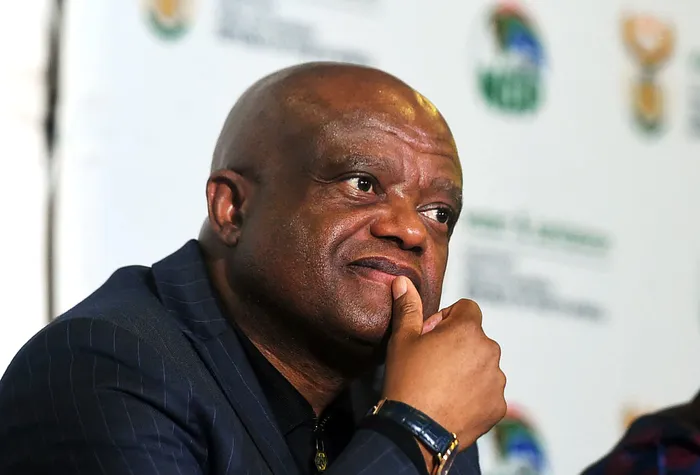
Joburg Mayor Dada Morero has called for an inclusive and collaborative future of electricity during his address at the City Power Energy Indaba 2025 held in Melrose Arch.
Image: Itumeleng English/Independent Newspapers
City Power has stated that it is creating a plan to deal with the issues of cable theft and unauthorised connections on its grid, which are costing the city billions of rand.
Sergeant Thela, the head of risk and security for the power entity, made this announcement on Tuesday, the first day of the two-day City Power Energy Indaba 2025, which was hosted at the Marriott Hotel in Melrose Arch.
Thela said the city has seen an increase in illegal connections, mostly in places close to informal settlements across the city.
"We are witnessing a high incidence of illegal connections in informal settlements, where there are breaches of electricity. There are plans to deal with this problem, even though we are not at liberty to talk about these plans as they are of a sensitive, security nature.
"To deal with this problem, we are working with crime intelligence, the investigation units, and other law enforcement agencies, and we are going to start dealing with those kinds of people," Thela said.
An estimated R3.5 billion was lost by City Power alone in the 2023–2024 fiscal year due to non-technical losses like theft and illegal connections, which cost Johannesburg millions of dollars every year, according to reports.
Illegal connections can cost millions of rand in fines, repairs, and lost revenue, and City Power has already lost at least R114 million this year in direct losses from theft and vandalism.
Meanwhile, City of Joburg Mayor Dada Morero used his welcoming address to outline the city's strategic goals for powering the City of Gold towards a sustainable future.
On Tuesday, Morero addressed delegates, where he called for collaboration in rethinking and reimagining the way in which the city produces and distributes its electricity and power output.
"South Africa stands at a defining crossroads. Our national energy landscape, once dominated by a single utility model, is undergoing structural change. The old system, built on centralised coal generation and state monopolies, is no longer fit for purpose in a society that demands decentralisation, inclusion, and sustainability," he said.
Morero added that for the city to work, the future of electricity and power generation must be democratic in ownership and diverse in generation.
He stated: "It is not about replacing one monopoly with another, but about building a decentralised ecosystem of public, private, and community energy producers."
With the country having recently battled with load shedding and rising cost of electricity, there have been calls for the government to find alternative ways of generating power.
As part of wide-ranging discussions, speakers on the first day delved into discussions centred on shaping a sustainable and resilient energy future.
They tackled themes ranging from grid modernisation and future energy networks to climate change and urban resilience.
City Power CEO, Tshifularo Mashava, revealed that the power utility is currently repositioning itself as an organisation that wants to be at the forefront of change.
"We are shaping the future of energy through innovation, collaboration, accountability, and people-centred solutions. We are constantly exploring ways not just to supply but to produce power, reducing reliance on Eskom and driving a more sustainable, independent energy future," she stated.
siyabonga.sithole@inl.co.za